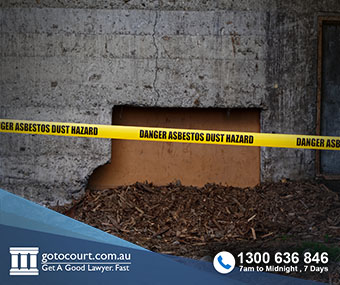Call our lawyers
now
or,
have our lawyers
call you
Administrative Review (NT)
Updated on Nov 01, 2023 • 4 min read • 225 views • Copy Link
Administrative Review (NT)
Administrative review is the review by a court or tribunal of a decision made by a government department or agency. It can occur in a range of contexts at both federal and state/territory level. This page deals with administrative review in the NT.
Merits review vs judicial review
There are two types of administrative review.
Merits review is where the original decision is reconsidered in its entirety. The aim of a merits review is to make sure the correct and preferable decision was made.
Judicial review is where the court or tribunal reviews whether the decision was made lawfully. The aim of judicial review is to ensure that the decision was made within the legal limits of the decision-maker’s power and that the proper processes were followed.
In the NT, merits review is conducted by the NT Civil and Administrative Tribunal (NTCAT) and judicial review is conducted by the Supreme Court.
The NT Civil and Administrative Tribunal
The NT Civil and Administrative Tribunal is governed by the NT Civil and Administration Tribunal Act 2014.
NCAT conducts merits reviews of a wide range of government decisions including licensing decisions, planning decisions, decisions about victims of crime compensation applications and decisions about freedom of information requests.
NTCAT also hears civil disputes valued at up to $25,000.
Applying for a merits review
A person who wants to seek a merits review of an NT government decision can initiate proceedings by filing a Form 1 Initiating Application. This application must be completed with the details of the parties, the decision being reviewed and the orders that the applicant is seeking.
An application fee will generally have to be paid, although the filing fee may be waived if the applicant is experiencing financial hardship.
If a government decision is reviewable by NTCAT, the original decision-maker will have notified you of this at the time the decision was delivered. There may be a time limit that applies to your right to apply for review by NTCAT.
If the application is accepted, the applicant will be provided with standard orders as to how the matter will be managed. They may also be asked to provide more information.
The Tribunal may require the parties to attend a mediation or compulsory conference to try and resolve the dispute. If this is unsuccessful, NTCAT will hold a hearing, at which both parties can give evidence and make submissions.
Rights of appeal
Administrative review decisions made by NTCAT cannot be appealed internally. However, if you believe that an NTCAT decision was made unlawfully, you can apply to the Supreme Court of the NT for review of the decision.
An appeal to the Supreme Court can only be made on a question of law. An appeal can only be made to the Supreme Court with the leave of the court. This is known as judicial review.
Judicial review
Judicial review the processing of reviewing a decision to make sure it was lawfully made. An application for judicial review must generally be made within 28 days of the original decision.
Common grounds for seeking judicial review are:
- that there was an error of law by the decision-maker
- that the decision-maker did not take into account relevant material
- that the decision-maker took into account irrelevant material
- that the decision-maker failed to afford the applicant procedural fairness
- that there was no evidence to support the decision
- that the decision-maker did not have jurisdiction to make the decision
- that the decision was an improper exercise of power
In the NT, judicial review is governed by the common law.
Supreme Court of the NT
Applications for judicial review are made to the Supreme Court of the NT under section 141 of the NT Civil and Administrative Tribunal Act 2014.
Upon hearing an appeal, the Supreme Court may make any of the following orders:
- an order confirming the decision
- an order varying the decision
- an order setting aside the decision and substituting another decision
- an order setting aside the decision and sending the matter back to the original decision-maker to reconsider
- an order dismissing the appeal.
If you require legal advice or representation in any legal matter, please contact Go To Court Lawyers.

Affordable Lawyers
Our Go To Court Lawyers will assist you in all areas of law. We specialise in providing legal advice urgently – at the time when you need it most. If you need a lawyer right now, today, we can help you – no matter where you are in Australia.How It Works







1. You speak directly to a lawyer
When you call the Go To Court Legal Hotline, you will be connected directly to a lawyer, every time.


2. Get your legal situation assessed
We determine the best way forward in your legal matter, free of charge. If you want to go ahead and book a face-to-face appointment, we will connect you with a specialist in your local area.


3. We arrange everything as needed
If you want to go ahead and book a fact-to-face appointment, we will connect you with a specialist in your local area no matter where you are and even at very short notice.


















